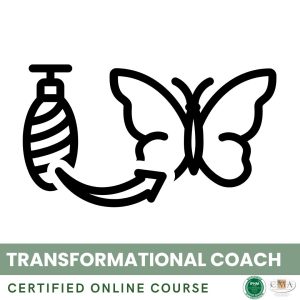Questioning and reformulation are two key techniques in conducting a coaching interview, which deepen reflection, clarify the discussion, and help the individual move towards their goal. They are part of an active and empathetic listening approach, allowing for a relevant and helpful bounce-back on the individual’s discourse.
Questioning is the art of asking the right questions at the right time. It is not an interrogation or an information gathering, but an invitation to explore a situation from a new angle. Questions should be open-ended, meaning they should not prompt a yes or no answer, but rather encourage broader thinking.
For example, instead of asking “Do you think your coming out will go badly?“, the coach can open up possibilities by asking “How do you envision the ideal course of your coming out?“. This allows for the envisioning of positive scenarios and the projection of a favorable outcome.
Questions can tackle various aspects: the facts (what happened?), emotions (what did you feel at that moment?), beliefs (what makes you think that?), values (what is important to you in this situation?), resources (what can you rely on?), solutions (what options do you see?).
Good questioning is like a thread of Ariadne guiding the person through the labyrinth of their thoughts. It should be fluid, logical, related to the objective of the session. The coach must know how to alternate between broad questions that open new perspectives, and targeted questions that deepen a specific point.
For LGBTQ+ individuals, questioning can allow for the exploration of the specifics of their experience and identity. For example, the coach can ask: “How does your sexual orientation influence your life choices?” or “What are the strengths you have developed as a transgender person?“. This helps value the unique journey and draw lessons from it.
Reformulation is a complementary technique that consists of repeating in one’s own words what the person has just expressed. It’s a powerful tool for clarifying and validating the message. By reformulating, the coach shows that they have understood and integrated the message, inviting the individual to clarify their thought.
There are various types of reformulation: echo reformulation which repeats the exact words, synthesis reformulation which summarizes the main ideas, reflection reformulation which focuses on the perceived emotions, clarification reformulation which explains a confusing point, deductive reformulation which highlights an underlying belief.
For example, if a gay person says “I dare not talk about it to my colleagues, I’m afraid of their reaction“, the coach can suggest a reflection reformulation: “You feel great apprehension about revealing your homosexuality at work“. This allows for the validation of the emotion and brings an exploration of this fear.
Reformulation acts like a kind mirror that reflects a clarified image of the person to themselves. It allows to reframe situations in a new light, nuance statements, defuse certain beliefs. It’s a powerful tool to help the person gain perspective and find their own solutions.
For LGBTQ+ individuals who may have internalized negative messages about their identity, reformulation can be a restorative experience. By highlighting resources and positive aspects, the coach helps transform the view the individual has of themselves and their journey.
Questioning and reformulation are skills that are honed with practice. They require finesse, appropriateness, creativity. The coach must continually adapt their communication according to the person and the situation, in a subtle dance of interaction.
In summary, questioning and reformulation are two sides of the same coin: the art of constructive dialogue. They stimulate reflection, clarify thought, open new perspectives. For LGBTQ+ individuals seeking self-affirmation, these techniques are valuable levers of transformation. By being pertinently questioned and accurately reformulated, the individual’s potential can unfold towards their life goal.
Key takeaways :
– Questioning and reformulation are two key coaching techniques to deepen reflection, clarify discussion, and help the individual move towards their goal.
– Questioning involves asking open-ended and relevant questions on different aspects (facts, emotions, beliefs, values, resources, solutions). It guides reflection like a thread of Ariadne.
– For LGBTQ+ individuals, questioning allows for the exploration of the specifics of their experience and identity, by valuing their unique journey.
– Reformulation consists of repeating in one’s own words what the individual has expressed. It’s a tool for clarification, validation, and reframing that acts like a kind mirror.
– There are different types of reformulation: echo, synthesis, reflection, clarification, deductive.
– For LGBTQ+ individuals who have internalized negative messages, reformulation has a restorative effect by transforming their views of themselves.
– Questioning and reformulation are skills that are honed with practice, requiring finesse, appropriateness, and creativity in adapting to each person and situation.
– They are two sides of the same constructive dialogue art, valuable transformation levers for helping LGBTQ+ individuals affirm themselves and unfold their full potential.
👉 To download docx (Editable) file click here : Click here
👉 To download PDF file click here : Click here
👉 To download MP3 file click here : Click here







